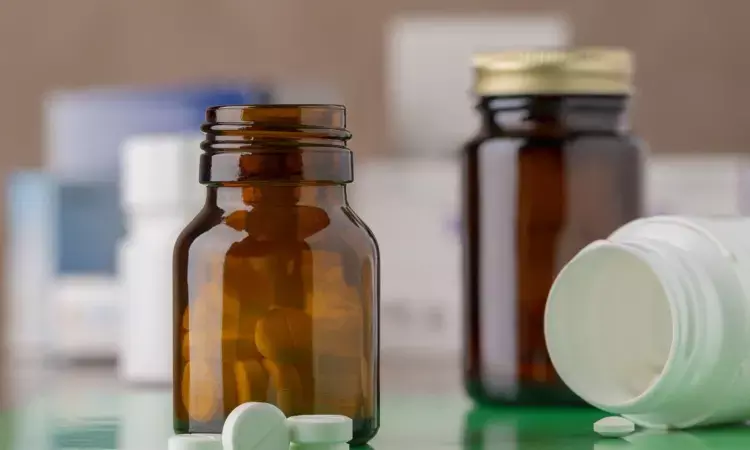- Home
- Medical news & Guidelines
- Anesthesiology
- Cardiology and CTVS
- Critical Care
- Dentistry
- Dermatology
- Diabetes and Endocrinology
- ENT
- Gastroenterology
- Medicine
- Nephrology
- Neurology
- Obstretics-Gynaecology
- Oncology
- Ophthalmology
- Orthopaedics
- Pediatrics-Neonatology
- Psychiatry
- Pulmonology
- Radiology
- Surgery
- Urology
- Laboratory Medicine
- Diet
- Nursing
- Paramedical
- Physiotherapy
- Health news
- Fact Check
- Bone Health Fact Check
- Brain Health Fact Check
- Cancer Related Fact Check
- Child Care Fact Check
- Dental and oral health fact check
- Diabetes and metabolic health fact check
- Diet and Nutrition Fact Check
- Eye and ENT Care Fact Check
- Fitness fact check
- Gut health fact check
- Heart health fact check
- Kidney health fact check
- Medical education fact check
- Men's health fact check
- Respiratory fact check
- Skin and hair care fact check
- Vaccine and Immunization fact check
- Women's health fact check
- AYUSH
- State News
- Andaman and Nicobar Islands
- Andhra Pradesh
- Arunachal Pradesh
- Assam
- Bihar
- Chandigarh
- Chattisgarh
- Dadra and Nagar Haveli
- Daman and Diu
- Delhi
- Goa
- Gujarat
- Haryana
- Himachal Pradesh
- Jammu & Kashmir
- Jharkhand
- Karnataka
- Kerala
- Ladakh
- Lakshadweep
- Madhya Pradesh
- Maharashtra
- Manipur
- Meghalaya
- Mizoram
- Nagaland
- Odisha
- Puducherry
- Punjab
- Rajasthan
- Sikkim
- Tamil Nadu
- Telangana
- Tripura
- Uttar Pradesh
- Uttrakhand
- West Bengal
- Medical Education
- Industry
Study reveals additive effects of SGLT2i and GLP-1RA in enhancing vascular repair among patients with diabetes and obesity

Canada: A recent study published in Cardiovascular Research has shed light on restoring blood vessel regeneration in the era of the combination of SGLT2 inhibitors and GLP-1 receptor agonist therapy for diabetes and obesity.
In the study, David A Hess, University of Western Ontario, London, Canada, and colleagues focused on the clinical potential of SGLT2i and GLP-1RA therapy to improve oxidative stress levels in the human bone marrow to reverse regenerative cell exhaustion and restore vessel repair capacity. Finally, they explored the use of combination SGLT2i/GLP-1RA therapy to synergize cardiovascular benefits compared to SGLT2i and GLP-1RA monotherapy and commented on the future of this therapeutic strategy in improving RCE and vascular repair.
As sodium-glucose cotransporter-2 (SGLT2) inhibitor and glucagon-like peptide-1 receptor agonists (GLP-1RAs) therapies are emerging as a novel therapeutic opportunity for patients with poorly controlled hyperglycemia, potential additive effects in reducing oxidative stress may also enhance vascular repair and further reduce the ischaemic cardiovascular (CV) comorbidities associated with type 2 diabetes (T2D) and obesity, the study stated.
Ischemic cardiovascular diseases, including coronary and peripheral artery disease, stroke, and myocardial infarction remain major comorbidities for individuals with T2D and obesity. During cardiometabolic chronic disease (CMCD), excess adiposity and hyperglycemia elevate oxidative stress and promote endothelial damage, alongside an imbalance in circulating pro-vascular progenitor cells that mediate vascular repair.
Individuals with CMCD demonstrate pro-vascular ‘regenerative cell exhaustion’ (RCE) characterized by excess pro-inflammatory granulocyte precursor mobilization into the circulation, monocyte polarization towards pro-inflammatory versus anti-inflammatory phenotype, and decreased pro-vascular progenitor cell content, impairing the capacity for vessel repair.
Remarkably, targeted treatment with the SGLT2 inhibitor empagliflozin in subjects with type 2 diabetes and coronary artery disease, and gastric bypass surgery in subjects with severe obesity, has been shown to partially reverse these RCE phenotypes.
SGL2 inhibitors and GLP-1 receptor agonists have reshaped the management of patients with T2D and comorbid obesity. In addition to glucose-lowering action, both drug classes have been shown to induce weight loss and reduce mortality and adverse CV outcomes in landmark clinical trials. Furthermore, both drug families also act to reduce systemic oxidative stress through altered activity of overlapping oxidase and antioxidant pathways, providing a putative mechanism to augment circulating pro-vascular progenitor cell content.
"The pleiotropic cardiorenal protective and weight loss benefits of SGLT2 inhibitor and GLP-1 receptor agonist treatments, respectively, present a novel opportunity for combination therapy to abrogate this chronic cardiometabolic cycle and potentially restore progenitor cell-mediated blood vessel repair," the researchers wrote.
"Further examination of combination therapies in humans is now warranted in the context of the recovery of endogenous vascular regeneration to uncover if the synergistic benefit can be observed in individuals within the CMCD spectrum," they concluded.
Reference:
Terenzi, D. C., Bakbak, E., Teoh, H., Krishnaraj, A., Puar, P., Rotstein, O. D., Cosentino, F., Goldenberg, R. M., Verma, S., & Hess, D. A. (2024). Restoration of blood vessel regeneration in the era of combination SGLT2i and GLP-1RA therapy for diabetes and obesity. Cardiovascular Research, 119(18), 2858-2874. https://doi.org/10.1093/cvr/cvae016
Dr Kamal Kant Kohli-MBBS, DTCD- a chest specialist with more than 30 years of practice and a flair for writing clinical articles, Dr Kamal Kant Kohli joined Medical Dialogues as a Chief Editor of Medical News. Besides writing articles, as an editor, he proofreads and verifies all the medical content published on Medical Dialogues including those coming from journals, studies,medical conferences,guidelines etc. Email: drkohli@medicaldialogues.in. Contact no. 011-43720751


